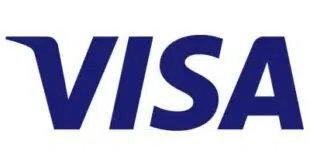A federal judge on Friday granted a temporary restraining order in favor of online classified-advertising portal Backpage.com, which challenged Cook County, Ill., Sheriff Thomas Dart after Visa Inc. and MasterCard Inc. granted Dart’s request to ban card payments on Backpage because the site allegedly facilitates the sex trade.
A spokesperson for Backpage’s law firm, Paul Hastings LLP, could not say late Friday if Backpage would immediately be able to again accept Visa and MasterCard payments. But Judge John J. Tharp Jr. of U.S. District Court in Chicago said that Backpage is entitled to a restraining order “to enjoin any further efforts … to ‘defund’ its business” until a full hearing can be held its request for a preliminary injunction. A date for that hearing is expected to be set next week.
Liz McDougall, Backpage’s general counsel, said in a emailed statement that “Judge Tharp’s opinion is an important reaffirmation of the critical role of the Internet in free speech and the continued evolution of e-commerce. It serves also as an emphatic reminder that government officials cannot undertake to destroy Web sites even when they disagree with hosted speech.”
Dart is a long-time opponent of so-called adult postings in online classified-ad sites such as Craigslist and Backpage, saying many such postings are thinly disguised ads for prostitution and facilitate human trafficking and sexual exploitation of minors. In late June, Dart sent letters to Visa and MasterCard asking that they ban Backpage transactions from their networks, requests the companies granted. Dart then commended the networks for “‘defunding this criminal enterprise,’” Tharp noted in his order.
Most ads on Backpage are free, but the site does charge for ads in its adult section, dating ads, recurring ads, and ads getting premium placements. The company had accepted general-purpose cards for 11 years. Within 48 hours of receiving letters from Dart, Visa and MasterCard early this month shut off card acceptance not just for the adult ads, but also for all advertising, which cut off most of Backpage’s revenues and prompted the company to sue Dart.
In the interim, Backpage is accepting Bitcoin and offering a private-label credit service, but the civil complaint filed July 21 said the company can’t go on indefinitely without card acceptance.
Dart’s office did not immediately respond to a Digital Transactions News request for comment.
Backpage argued in a Thursday hearing that Dart was interfering with its First Amendment rights, an argument Dart contested because the ads allegedly involved illegal conduct. Tharp, while not ruling on the merits of Backpage’s lawsuit, said First Amendment questions did come into play, however, because in cutting off payments for everything for sale on the site, “Backpage cannot collect its normal fees for even the most benign advertisements, and therefore will be unable to host any when the money runs out.”
Tharp also said that Backpage had established a “more-than-negligible likelihood of success on the merits of its claim that Dart’s “informal lobbying of the credit card companies violated the First Amendment by imposing an informal prior restraint on the advertisements hosted by Backpage.com.”





